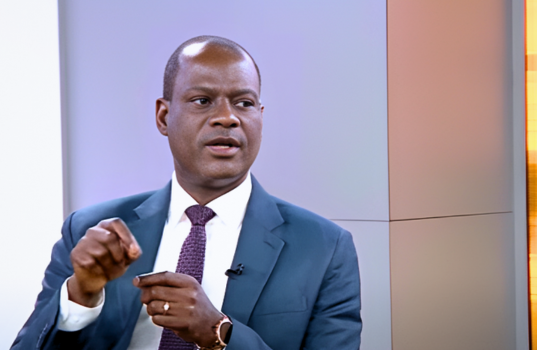Oyedele: most informal sector workers too poor to tax
More than 90% of Nigerians working in the informal sector simply can’t afford to pay taxes — and trying to force them is counterproductive, says Taiwo Oyedele, Chairman of the Presidential Fiscal Policy and Tax Reforms Committee.
Speaking during an interactive session with journalists, influencers, and policy analysts on Friday, Oyedele pushed back against the popular belief that Nigeria’s informal sector is a goldmine of untapped government revenue.
“This is precisely why Nigeria keeps introducing multiple taxes — we’re constantly chasing the wrong people,” he explained.
According to Oyedele, the informal economy — made up of roadside vendors, vulcanisers, barrow-pushers, and other low-income earners — is driven largely by survival, not profit.
“If someone is roasting corn by the roadside, even with a steady stream of customers all day, they’re still poor,” he said. “Same with a vulcaniser or someone pushing a wheelbarrow — they’re just trying to make it to the next day. They shouldn’t be taxed.”
He added: “We shouldn’t tax the seeds. Let’s wait for the fruits.”
That philosophy, Oyedele said, is what underpins President Bola Tinubu’s tax reform stance: don’t tax poverty or capital — focus on growth and capacity.
Oyedele also highlighted significant changes in Nigeria’s tax regime aimed at improving accountability and tightening loopholes.
According to him, while the Federal Inland Revenue Service (FIRS) collected over ₦20 trillion in taxes last year — and is on track to surpass that this year — the real impact of the reforms lies in stronger governance and transparency.
“Now, there are stricter structures and clearer consequences. If a tax officer fails to do their job, there are personal liabilities. Agencies must now publish their reports, which they weren’t doing before,” he said.
He emphasized that the era of off-the-books collections is over. All tax revenues now go straight into the federation account, rather than being diverted into accounts controlled by the FIRS.
Oyedele didn’t mince words about past corruption in the tax system. He explained that tax evasion wasn’t just driven by dishonest taxpayers, but also by tax officers and consultants who played key roles in enabling the practice.
Under the new laws, taxpayers now face tougher penalties for evasion, consultants are required to register and are actively monitored, and tax officers face heightened scrutiny and personal accountability for misconduct.
“These changes may be tough, but they’re moving us in the right direction,” Oyedele concluded. “The goal isn’t to squeeze people — it’s to build a fair, transparent, and effective tax system that supports growth.”




